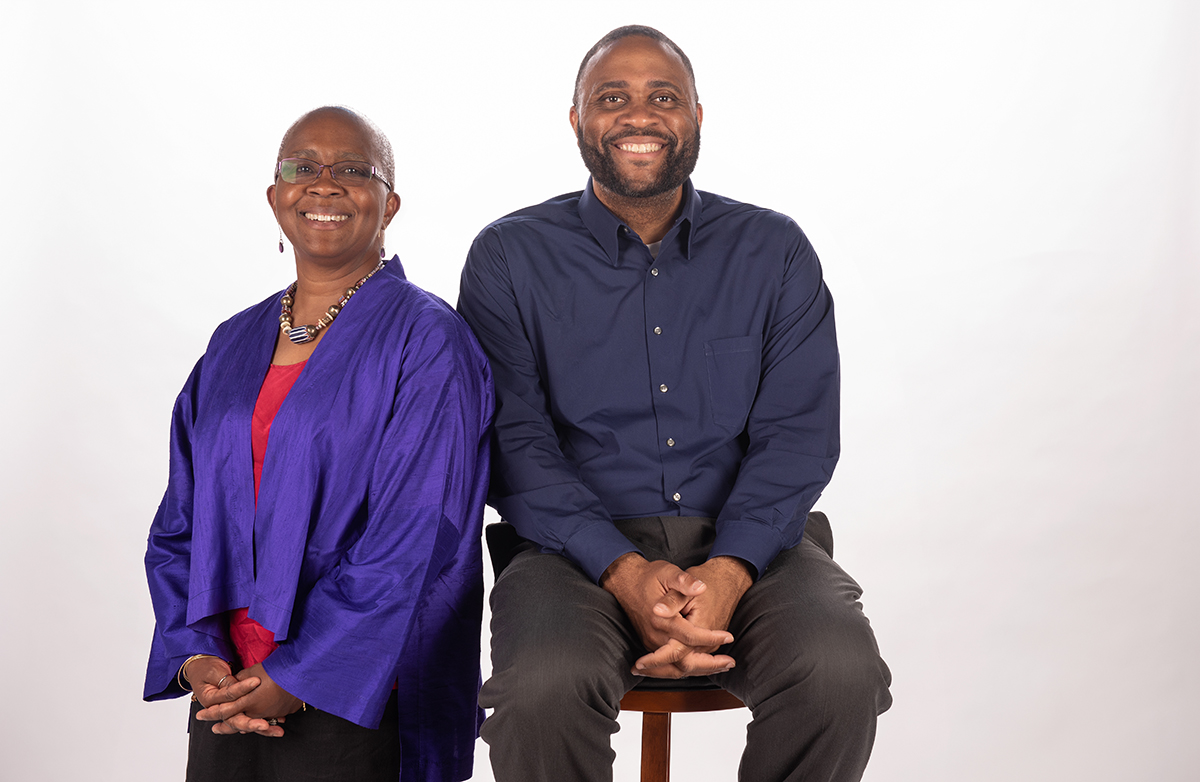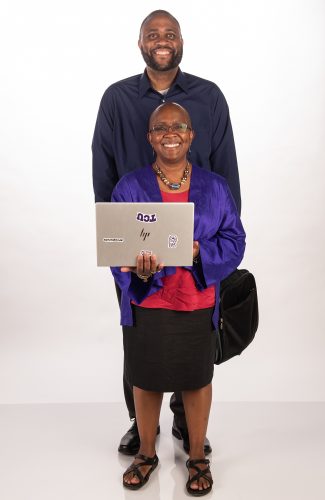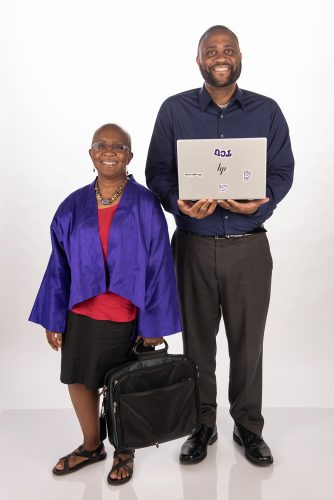What Kind of Job Can You Get with a Liberal Arts Degree?
After this class, liberal arts majors see the opportunities.

Claire Sanders and Terrence Hood have co-taught a regular AddRan course: ADRN 20101 Make Your Major Work or How to Get a Real Job With Your B.A. Photo by Glen E. Ellman
What Kind of Job Can You Get with a Liberal Arts Degree?
After this class, liberal arts majors see the opportunities.
Liberal arts majors looking toward their post-college careers have a campus class to help them consider their futures and the job market.
For several years, Claire Sanders and Terrence Hood have co-taught Make Your Major Work. Sanders is a senior instructor in history and co-director of the African American and Africana Studies minor. Hood, a former career consultant to AddRan College of Liberal Arts, is assistant director for alumni career services and student athletes in the BNSF Railway Career Center.
Here is what they cover in the class.
Your class is known as How to Get a Real Job With Your B.A. What do your students learn?
SANDERS: The course, which is a full decade old and runs for only eight weeks, is designed to put a floor under liberal arts majors. It gives them the tools they need to move forward in their job search and career path.

Claire Sanders is a senior instructor in history and co-director of the African American and Africana Studies minor. Terrence Hood, a former career consultant to AddRan College of Liberal Arts, is assistant director for alumni career services and student athletes in the BNSF Railway Career Center. Photo by Glen E. Ellman
Many liberal arts students don’t know where to start. I tell them it’s all about their skills and abilities. Skills and abilities — nobody cares about your major. They care about your ability to think critically, analyze material and write.
What other skills do employers like to see?
HOOD: Teamwork and collaboration. Oral communication skills. An understanding of digital technology along with leadership, professionalism and work ethic. Increasingly, employers are also looking for global and intercultural fluency, the idea of openness and sensitivity. But the bottom line is employers want people who can think.
What do future job applicants need to know about social media?
SANDERS: I had a young woman I’d mentored for several years who arrived at a point when she was ready to launch. She asked me if I’d hire her. I said no. Her Facebook page was a mess.
I tell students to Google themselves and to scrub their Facebook pages and to remember that social media messages do not die. Think about what your voicemail message says about you. You want a professional presentation.
Students compose a résumé and cover letter while in your class. What else goes on?
SANDERS: I have them go over their elevator pitch, a 30-second verbal introduction, along with basic interviewing strategies. Students complete a practice interview with one of the career counselors here, and as a class we go to the Career and Intern Expo every semester, which now has about 100 employers represented. Every semester I say to students: You can find a job after you cross the stage and shake the chancellor’s hand, or you can prepare ahead of time. My students should not be those seniors who are calling, emailing and visiting the career center in a panic after graduation.
What do students ask about most?
HOOD: How do I stand out against the competition? One of the things I always recommend is having a LinkedIn page. I have counseled and coached hundreds of liberal arts students, and maybe 15 percent of them know about LinkedIn. Something like 94 percent of employers these days use social media to vet their candidates. Without LinkedIn, you are almost invisible to opportunities. This past February, I organized a LinkedIn workshop for the first time. About 25 students attended.
When do you want to start conversations with students about their post-college plans?
HOOD: Freshman year is ideal. If they aren’t ready to sit down with me, they can go to careers.tcu.edu. The first thing they’ll see is the 4 Year Career Success Plan, a checklist that gives them guidelines on what they should be doing and thinking about as freshmen, sophomores, juniors and seniors.

Liberal arts majors looking toward their post-college careers have a campus class, taught by Claire Sanders and Terrence Hood, to help them consider their futures and the job market. Photo by Glen E. Ellman
When they come talk to me or when I go speak to classes, one of the things I always emphasize is not limiting themselves from applying for positions. An anthropology major can work in government. A political science major can work for a nonprofit or become an entrepreneur.
Who worries more: liberal arts majors or their parents?
SANDERS: Both. Academic advisers tend to get more calls from parents than I do. I see so many students who switched from being business majors because business was what their parents wanted, not them. And if parents ask me what their student can do with a liberal arts major, I say anything.
For students, I always tell them their volunteer experience matters. If they were a supervisor with 20 people working under them and they completed a project from start to finish, that demonstrates success. Are they Frog Camp leaders, or do they hold leadership positions in Greek life? They need to put that on their résumés. It’s sometimes a challenge to get students to think analytically about their own experiences.
Any parting words of advice?
HOOD: I cannot speak enough about how vital internships are. They’re more important now than even five years ago. TCU offers an intern scholarship program for students who obtain an unpaid internship. We think it’s that important to support their goals.
SANDERS: Don’t print out your résumés with purple ink. Just don’t.

Your comments are welcome
Comments
Related reading:
Alumni, Features
Master of Liberal Arts Program Encourages Critical Thinking
The degree gives graduate students a chance to take lifelong learning and leading a step beyond.
Campus News: Alma Matters, Research + Discovery
Factoring Humanity and Happiness into Economic Calculations
In a Q&A, Rob Garnett, professor of economics, honors professor of social sciences and associate dean in the John V. Roach Honors College, combines economics with happiness.
Letters
TCU Students Can Do Anything
These words caught my eye recently: “What can you do with a liberal arts degree from AddRan? Anything.”